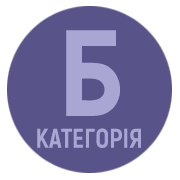DEVELOPMENT OF INTERCULTURAL COMMUNICATIVE COMPETENCE OF UKRAINIAN STUDENTS VIA THE MEANS OF MULTIMODAL TEXT IN LEARNING KOREAN
DOI:
https://doi.org/10.32782/philspu/2025.11.26Keywords:
intercultural communicative competence, multimodal text, Ukrainian students, Korean language, intercultural education, digital didacticsAbstract
The article considers conceptual and methodological approaches to the formation of intercultural communicative competence (ICC) of Ukrainian students using multimodal text in the process of learning the Korean language. Taking into account the trends of globalization and the growing popularity of Korean culture among Ukrainian youth, the emphasis is on the need to develop students' ability to interact effectively in a multicultural environment. It is determined that multimodal text – an integrative tool that combines visual, auditory, textual and kinetic modalities – provides a deeper immersion in the authentic linguistic and cultural context, activates cognitive processes, forms emotional sensitivity and adaptive behavior in foreign language communication. Based on the experience of modern Ukrainian and foreign linguodidactic research (Pinchuk, Lytvynova, Burov, Frezzo, Stefanidis, etc.), the author substantiates the pedagogical feasibility of using multimodal resources – dramas with subtitles, digital comics, culturally marked music, animated dialogues – in teaching the Korean language. The presented empirical results of experimental training demonstrate an increase in the level of students' MCI by 25% on the Cultural Intelligence Scale. The article analyzes the effectiveness of such tasks as cultural analysis of video fragments, keeping a multimodal diary, situational role-playing games, and creating a cross-cultural collage. It was established that such tasks contribute to the development of cultural empathy, self-reflection, and understanding of the specifics of Korean communicative behavior. The content of students' written reflections after completing the course indicates the formation of the ability to intercultural analysis, recognition of semiotic markers and contextual signals. The author emphasizes that multimodal text is not only a tool for linguistic learning, but also a means of forming cultural sensitivity, tolerance and intercultural awareness, which is extremely important in the conditions of a modern globalized society. As a result, the conclusion is made about the need for further development of methods for integrating multimodal resources into oriental language courses, increasing the digital literacy of participants in the educational process and creating localized platforms with multimodal educational materials. The article contains practical recommendations for teachers and researchers in the field of intercultural education, digital didactics and teaching Korean in the Ukrainian educational context.
References
Пінчук О.П., Литвинова С.Г., Буров О.Ю. Синтетичне навчальне середовище – крок до нової освіти. Інформаційні технології і засоби навчання. 2017. № 4 (60). С. 28–45. URL: https://journal.iitta.gov.ua/index.php/itlt/article/view/1831.
Ященко Ю. В. Сутнісний зміст формування іншомовної комунікативної компетентності у студентів ВНЗ . Вісн. Черкас. нац. ун-ту імені Богдана Хмельницького. Сер. : Пед. науки. 2009. Вип. 149. С. 57–59.
Буров О.Ю. Динаміка розвитку інтелектуальних здібностей обдарованої особистості у підлітковому віці. К. : Тов «Інформаційні системи», 2012. 258 с.
Литовченко Н. А. Розвиток міжкультурної комунікативної компетенції студентів у процесі вивчення ділової іноземної мови. Вісник Дніпропетровського університету . Серія Мовознавство. 2015. Т. 22. Вип. 21(3). С. 75–78. URL: http://nbuv.gov.ua/UJRN/vdumo_2015_23_21%283%29__16
Биков В.Ю. Інноваційний розвиток засобів і технологій систем відкритої освіти. Сучасні інформаційні технології та інноваційні методики у підготовці фахівців: методологія, теорія, досвід, проблеми: Зб. наук. праць. Випуск 29. Київ-Вінниця: ТОВ фірма «Планер», 2012. С. 32–40.
Литвинова С.Г. Cистема комп’ютерного моделювання об’єктів і процесів та особливості її використання в навчальному процесі закладів загальної середньої освіти. Інформаційні технології і засоби навчання. 2018. Том 64. № 2. C. 48–65. URL: https://journal.iitta.gov.ua/index.php/itlt/article/view/2111/1330
Frezzo, D. The role of technology in the education of the future. 2020 World Economic Forum. https://www.weforum.org/agenda/2017/05/science-of-learning/
Stefanidis, K., Psaltis, A., Apostolakis, K. C., Dimitropoulos, K., & Daras, P. Learning prosocial skills through multiadaptive games: a case study. Journal of Computers in Education. 2019. 6(1). 167–190. https://doi.org/10.1007/s40692-019-00134-8.








